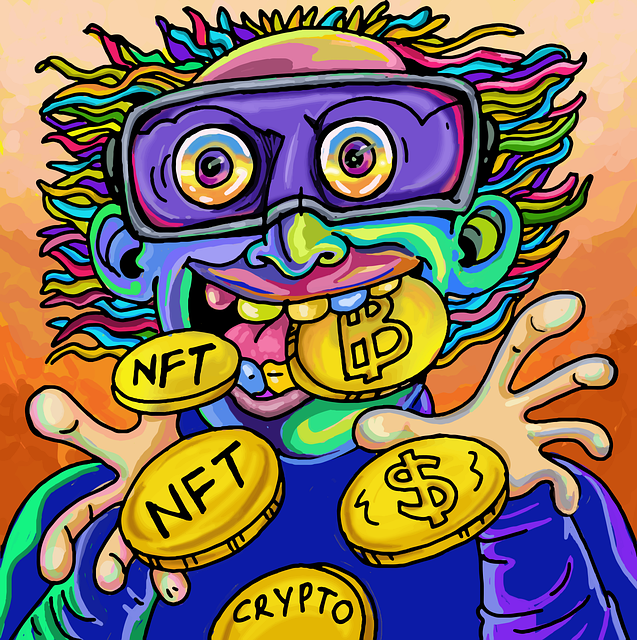Multi-signature wallet support on Ethereum boosts security and decentralization by requiring multiple private keys for transactions. This feature adds an extra layer of protection against unauthorized access or fraud, making it ideal for managing high-value assets or collective ownership scenarios. By distributing control among several entities, these setups align with Ethereum's core principles, fostering a robust and resilient blockchain ecosystem.
The Ethereum blockchain, renowned for its flexibility, is transforming digital interactions with multi-signature wallet support. This article explores the security and decentralization benefits of multi-sig wallets, delving into their smart contract development, gas costs, and interoperability within the Ethereum ecosystem. We uncover diverse use cases from DeFi to enterprise cryptocurrency management, while addressing challenges like scalability and user experience. Best practices for robust construction are outlined, along with future trends such as Layer 2 solutions and advanced authentication methods, promising a secure and accessible multi-signature wallet landscape.
- Understanding Multi-Signature Wallets: Security and Decentralization
- – Definition and basic functionality
- – Advantages in enhancing security and user control
- – How they differ from traditional wallets
- Implementing Multi-Signature Support on Ethereum Blockchain
- – Smart contract development for multi-sig wallets
Understanding Multi-Signature Wallets: Security and Decentralization

Multi-signature wallets support enhances both security and decentralization within Ethereum blockchain development. By requiring multiple private keys to authorize transactions, these wallets introduce an extra layer of protection against unauthorized access or fraudulent activities. This is particularly beneficial for managing high-value assets or collective ownership scenarios.
Decentralization is further strengthened through multi-signature wallet support as it distributes control among several entities. Unlike traditional wallets where a single key controls all funds, multi-signature setups ensure that no single entity holds absolute power over the assets. This distributed nature aligns with Ethereum’s core principles, fostering a more robust and resilient blockchain ecosystem.
– Definition and basic functionality

Ethereum blockchain development revolves around creating and deploying decentralized applications (dApps) on a robust and secure network. At its core, Ethereum facilitates smart contracts—self-executing contracts with predefined rules encoded in code. One notable aspect is the multi-signature wallet support, which enhances security by requiring multiple private keys to authorize transactions. This feature ensures that even if one key is compromised, the funds remain safe unless a majority of signatures are provided.
Ethereum’s development ecosystem supports various programming languages and tools, making it accessible for developers worldwide. The platform’s flexibility enables the creation of diverse dApps, ranging from decentralized finance (DeFi) protocols to non-fungible token (NFT) marketplaces. As Ethereum continues to evolve, its focus on scalability, privacy, and interoperability positions it as a leading force in shaping the future of blockchain technology.
– Advantages in enhancing security and user control

Ethereum’s blockchain development offers significant advantages in enhancing security and user control. One notable feature is the integration of multi-signature wallet support, which provides an additional layer of protection for funds and assets. This means that transactions require multiple private keys, often from different users, to be authorized, making it much harder for unauthorized individuals to access or spend funds.
This robust security measure gives users greater control over their digital assets, as they can set up complex approval processes to manage their wallets. It’s a game-changer for various use cases, especially in scenarios where trust and security are paramount, ensuring that only authorized parties can initiate transactions, thus fostering a more secure and transparent environment for all participants.
– How they differ from traditional wallets

Ethereum blockchain development introduces a new paradigm in digital wallet functionality compared to traditional wallets. While conventional wallets primarily store and manage private keys for access to funds, Ethereum wallets offer advanced features such as multi-signature wallet support. This innovative feature enhances security by requiring multiple signatures for transactions, ensuring that no single entity can initiate a transfer without the consent of all parties involved.
In contrast, traditional wallets often lack these sophisticated security measures, making them more vulnerable to unauthorized access and fraudulent activities. Ethereum wallets, with their multi-signature wallet support, provide a robust solution for users dealing with substantial assets or requiring enhanced security protocols, thereby revolutionizing how we think about digital asset management.
Implementing Multi-Signature Support on Ethereum Blockchain

Implementing multi-signature wallet support on the Ethereum blockchain offers enhanced security and flexibility for users. This feature allows multiple parties to approve transactions before they’re executed, providing an extra layer of protection against unauthorized access or fraudulent activities. With multi-signature wallets, individuals can collaborate securely, delegating authority while maintaining control over their funds.
Ethereum’s smart contract functionality plays a pivotal role in enabling this advanced security measure. Developers can craft sophisticated contracts that enforce multi-signature requirements, ensuring that transactions meet specific criteria before being validated. This capability is particularly valuable for businesses and organizations dealing with significant financial assets, as it facilitates group decision-making and reduces the risk of single points of failure or malicious actions by a single individual.
– Smart contract development for multi-sig wallets

Ethereum’s smart contract functionality plays a pivotal role in facilitating the development of multi-signature (multi-sig) wallets. These wallets offer enhanced security by requiring multiple private keys for authorization, making them ideal for businesses and organizations managing significant assets.
Smart contracts enable the automated execution of agreements between multiple parties, ensuring that transactions are triggered only when specific conditions are met. In the context of multi-sig wallets, this translates to setting up rules for spending funds, where signatures from two or more predefined keys are necessary. This distributed signature approach prevents unauthorized access and provides an extra layer of protection against fraud or loss, making Ethereum a preferred platform for developing robust multi-signature wallet solutions.
The implementation of multi-signature wallet support on the Ethereum blockchain represents a significant advancement in enhancing both security and user control. By leveraging smart contracts, developers can create robust multi-sig wallets that offer greater protection against unauthorized access while empowering users with increased autonomy. Understanding these features and their differences from traditional wallets is key to embracing this innovative technology. As the Ethereum ecosystem evolves, adopting multi-signature wallet support becomes an essential step towards securing digital assets in a decentralized manner.
